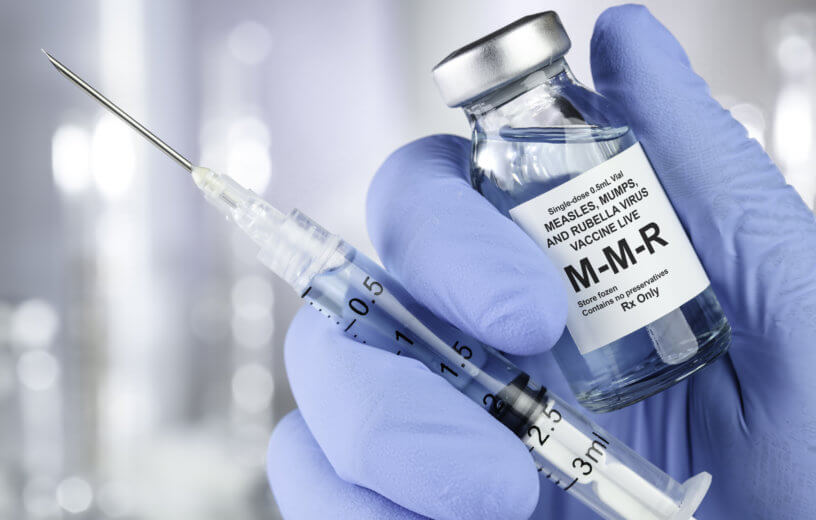WASHINGTON — Vaccinations can be a life-saving tool that stops the spread of many diseases. While researchers are still working to create a defense against COVID-19, a new study says the vaccines we receive as children may hold the key to avoiding fatal coronavirus complications.
The study, published in mBio, finds evidence that the measles vaccine can help protect against severe inflammation and infections tied to COVID-19. Researchers say the MMR (measles, mumps, rubella) vaccine not only provides immunity to those illnesses, but also helps to train your cells to fight off other diseases too.
Vaccines train leukocytes, the body’s immune system cells, to become more effective at defending against a broad variety of infections. These newly trained defenders, called myeloid-derived suppressor cells (MDSCs), are believed to protect against septic inflammation and death in COVID-19 patients. Severe lung inflammation and sepsis have been tied to many fatal cases of the coronavirus.
“While we are conducting the clinical trials, I don’t think it’s going to hurt anybody to have an MMR vaccine that would protect against the measles, mumps, and rubella with this potential added benefit of helping against COVID-19,” Dr. Paul Fidel, Jr. from Louisiana State University said in a statement.
MMR vaccine & U.S.S. Theodore Roosevelt outbreak
The study points to the outbreak of COVID-19 on board the U.S. Navy carrier U.S.S. Theodore Roosevelt as evidence of how MDSCs can save lives. More than 1,100 sailors reportedly tested positive for the virus, with just one reported death. Researchers say all U.S. Navy recruits are given the MMR vaccine and they believe this gave the crew a needed boost of MDSCs.
Dr. Fidel says these trained cells have a long lifespan, but they don’t last forever. The study adds that this is likely why children have not been severely impacted by COVID-19. since most of them have recently received their vaccinations and have a body full of MDSCs.
“While the MDSCs are long-lived, they are not life-long cells. So, a booster MMR would enhance the antibodies to measles, mumps, and rubella and reinitiate the MDSCs,” explains Dr. Fidel. “We would hope that the MDSCs induced by the MMR would have a fairly good life-span to get through the critical time of the pandemic.”
The study authors hope their lab research will now lead to a clinical trial showing how the vaccines we already have can provide a “low-risk-high-reward” barrier against the coronavirus.
Like studies? Follow us on Facebook!
